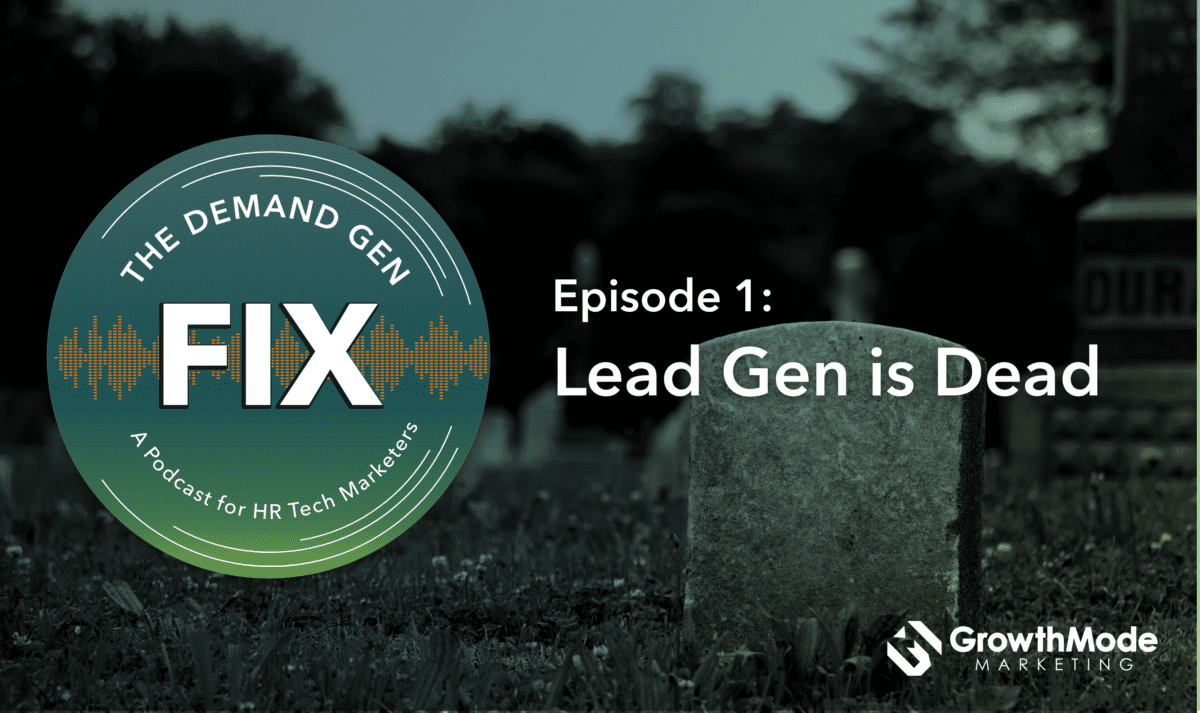Use this list to combat random acts of marketing and drive a strategic approach
Is your strategic marketing plan gathering dust on a shelf somewhere? Do you find yourself dropping everything to accommodate ad-hoc marketing requests from the sales team? Is your social media presence driven by a sporadic “Hey, we need to post something this week” approach?
If you answered ‘yes’ to any of these questions, you’re not alone. Too many companies get caught in this cycle, committing random acts of marketing instead of executing on their strategic marketing plan. Random acts of marketing are reactive tactics often driven by the loudest voice in the room. They tend to focus on chasing shiny objects rather than driving results and building sustainable, long-term growth.
As marketers, we’re often pressured into doing random acts of marketing to appease certain stakeholders. But we also need to evaluate the consequences of accommodating such requests. Over time, these activities erode our ability to focus on what’s important – and deliver on our strategic marketing goals.
Random Acts of Marketing vs. Strategic Marketing:
| Random Acts of Marketing | Strategic Marketing |
| Disjointed
Low ROI Not data-driven Not backed by marketing strategy Not focused on your target audience Reactive, knee-jerk approach |
Consistent and coordinated
High ROI Driven by measurable KPIs Driven by a strategic marketing plan Based on audience needs Proactive, purposeful approach |
How to avoid random acts of marketing
Saying ‘no’ to random acts of marketing can be difficult, especially if your organization has a history of saying ‘yes.’ Here’s a checklist you can use to combat random acts of marketing – and drive alignment with your strategic marketing approach.
Does it reach my target audience?
Many random acts of marketing fail for a simple reason: they don’t reach their intended audience. So aligning your marketing efforts with a well-researched ideal customer profile (ICP) is a great way to help minimize random acts of marketing.
An ICP is a description of your best fit customer. It’s the type of company most likely to buy your products or services and maximize the value of working with your organization. So, if a proposed marketing activity doesn’t target your ICP, then it’s likely not a strategic marketing activity and it shouldn’t be a priority. To learn more about ICPs, check out our recent blog article on this topic: Why You Need an Ideal Customer Profile for a Successful Demand Generation Strategy.
How does it align with the buyers’ journey?
The more you know about your buyers, the better you’ll understand how they think, and what advice and solutions they’re looking for. So, understanding your buyers’ journey is a critical component of strategic marketing.
If you’ve mapped out the typical steps in your buyers’ journey, this can be a great resource to help combat random acts of marketing. The next time you receive an ad-hoc marketing request, see if you can pinpoint how it fits into your buyers’ journey. If it doesn’t fit, then guess what? You probably shouldn’t be doing it. If your organization doesn’t have a buyers’ journey map, see this article from Hubspot for some advice on getting started.
How does it fit into our strategic marketing objectives?
Every strategic marketing activity should have clear goals and defined measures for success. And those objectives and measurements should also align with your company’s broader strategic marketing plan. So, another great way to minimize random acts of marketing is to evaluate them against your plan.
Even if the activity meets your stated goals, it’s wise to take things one step further. Ask how you’ll measure results to determine if the activity is successful. If you can’t easily find a way to establish KPIs and measure your results, that’s a telltale sign. It likely means you’re dealing with a random act of marketing, and it’s not worth your time.
Develop a plan – and hold yourself accountable to it
There’s a common culprit behind many random acts of marketing. Often, companies simply don’t hold themselves accountable to follow the objectives in their strategic marketing plan. Those who do stick to their marketing strategy often need to resist short-term pressures in favor of the long game. And this can be easier said than done. Here’s our advice on how to win at the long game:
- Define what success looks like in the next 12 months and what it will take to get there. Don’t just wing it – be thoughtful and strategic in your approach.
- Communicate your plan to key stakeholders and ensure everyone knows what their role is in helping to achieve goals.
- Don’t drop everything for the next idea or request someone brings to you. Carefully evaluate it against the plan first, and don’t be afraid to say ‘no’ if it doesn’t align with the plan.
- Prioritize requests: many are not going to move the needle and may not be worth doing.
- Stay the course. If you want to be impactful, you need to be focused and intentional with all your marketing efforts.
Learn more about building a demand generation engine to drive high growth.
Here at GrowthMode Marketing, we’re experts at helping our clients drive growth with marketing strategies designed to generate demand and build brand value. And we can help you too! Contact us today to learn more.




